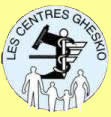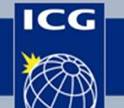Port au Prince Iron Market to Be Rebuilt
 Port au Prince lost many of its architectural landmarks in the earthquake. One of these was the Iron Market. While the market was hot and crowded, it was also full of energy. One cannot help but miss it. Half of the market was for vendors selling Vodoun flags, paintings and other works of art. The other side was an entrepeneurial free for all where you could find just about anything. The CNN article below notes that, while it will take years, the Iron Market will be rebuilt. Hopefully it will be bigger, stronger, and safer.
Port au Prince lost many of its architectural landmarks in the earthquake. One of these was the Iron Market. While the market was hot and crowded, it was also full of energy. One cannot help but miss it. Half of the market was for vendors selling Vodoun flags, paintings and other works of art. The other side was an entrepeneurial free for all where you could find just about anything. The CNN article below notes that, while it will take years, the Iron Market will be rebuilt. Hopefully it will be bigger, stronger, and safer.








